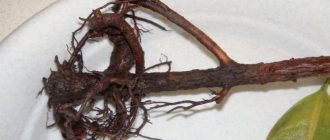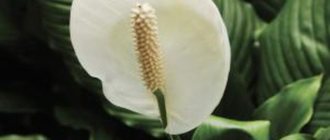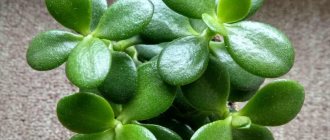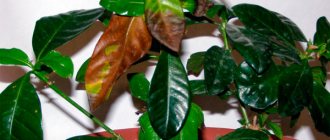Gardening » Citrus » Lemon
0
1429
Article rating
Kira Stoletova
Lemon is a hybrid evergreen citrus plant. It is grown indoors for fruit production and for decorative purposes. The plant is sensitive to growing conditions, but is resistant to diseases. If lemon leaves fall off, this is a symptom of a violation of the rules of care.
Reasons for leaves falling off indoor lemons
Why does it shed its leaves? What to do?
Let's try to figure out why the lemon tree sheds its leaves and what to do in this case.
Lemons come from places where, even in winter, they are able to receive sufficient sunlight. to the lack of lighting by dropping green leaves. The plant becomes depleted and is unable to provide nutrition to all the foliage, and gets rid of the excess.
IMPORTANT! What to do if it has dropped all its leaves and is drying up? Place the pot near a sunny window on the south side and be sure to provide it with additional lighting in winter.
We talked about the rules for caring for indoor lemons in winter in a separate article.
Lemon leaves falling
Indoor lemon does not always grow well. Sometimes citrus growers encounter problems such as drying out, curling, yellowing and falling leaves. If this happens, it means that the plant’s maintenance conditions were violated and it began to hurt.
To prevent it from completely withering, you need to understand the causes of the problem and change your approach to growing lemon. There are a number of common factors that affect his health.
Detailed instructions on how to grow lemon from a seed at home and 3 useful tips for caring for seedlings
Read
What are the beneficial properties of lemon and how citrus is used in various fields
Read
Blackening of leaf tips
Lemon loves high air humidity . In winter, if the pot is located next to a hot radiator, the air is very dry. Inevitably, the lemon leaves turn black and dry out.
To avoid this, it will be enough to regularly spray the plant , thereby bringing it closer to optimal humidity.
Features of the indoor microclimate
Insufficient moisture is not the only reason why lemon leaves fall off. This is a moisture-loving crop that requires regular, abundant watering and high air humidity, up to 90%.
If the microclimate is arid and the air is dry, then the leaf blades of the plant begin to turn yellow at the edges. A wet shower is the best solution to this problem. You can use a regular spray bottle or a humidifier. The most budget option is to place a container or reservoir filled with water next to the winter garden.
The yellowness of the leaves also appears when the temperature in the apartment or house is not standardized. Due to sudden changes in temperature, the leaves begin to curl. A tree reacts to a draft in much the same way, so a place near a door or an open window is not recommended for placing a lemon.
Spots on leaves
Yellow spots on leaves . Yellowing of the leaves of a newly purchased lemon is normal. The plant is trying to adapt to new living conditions. Why do the leaves turn yellow after being at home for a sufficient time and what to do? We will find out further. Most likely, the leaves are damaged by sunburn or excessive fertilization.
As much as he loves sunlight, he should not receive them openly. The pot should be kept on the south side so that there is adequate lighting, but the plant needs to be slightly shaded in the summer heat. If the reason is excessive fertilizing, then you should wash the soil in the pot.
Brown spots on leaves . Lemon leaves begin to darken, turn brown and acquire a rusty tint due to a lack of phosphorus . It starts at the tips of the leaves and then spreads to the sides of the leaf.
Fruits also suffer from a lack of this microelement. The peel becomes thick and they themselves take on an ugly shape.
The role of vitamins, micro- and macroelements in the life of citrus fruits
With timely application of fertilizers containing a complex of the above elements, you will be able to figure out why the lemon was suffering before and understand why the leaves of the lemon are falling off.
Nitrogen allows you to maintain the color of plant leaves in their usual green state, which means that the plant is healthy. Calcium promotes normal development of the root system and the absence of pathological processes.
Without the presence of phosphorus, the construction of plant cells would be impossible, the fruits would not be of different quality, would not be so sweet, fortified, and would not contain the full range of useful microelements.
Thanks to potassium, nitrogen is absorbed faster, thereby accelerating the ripening of shoots covered with a lignified crust, and helps to increase the plant's immunity to citrus diseases.
It is important! With complex systematic fertilization, the taste qualities of citrus fruits increase significantly.
Curling leaves
The leaves curl when the lemon is not kept in very favorable conditions. Such as:
- Insufficient ventilation with fresh air.
- Dry air.
- Lack of watering.
- This may also indicate a deficiency of a microelement such as copper.
REFERENCE! To prevent leaf curling, it is advisable to move the pot away from the hot radiator, water it properly, spray it at least twice a day, and apply the necessary fertilizing in a timely manner.
How to avoid soil acidification when replanting
This happens when a plant is transplanted into a pot that is too large. To avoid a common problem, select a new container based on the volume of the lemon’s root system. You should not buy a planting pot that is 3-4 cm larger than the previous one.
The tree quickly gets used to its usual habitat, so a sudden change in atmosphere can lead to the shedding of citrus leaves.
Pathogenic organisms also have an effect on the plant. By identifying pests in a timely manner - scale insects, spider mites - you can avoid the death of the plant and quickly return it to a healthy state thanks to prevention.
How to find out the reason why lemon leaves fall and how to deal with it? Sometimes none of the above factors take part in this process, and the tree recovers on its own, renewing the crown. In this case, exclude all possible reasons:
- prevent the occurrence of drafts;
- provide timely, systematic watering;
- control indoor air humidity;
- Fertilize only a healthy, strong plant;
- watch how the lemon reacts to a change of place - this may be one of the factors that answers the question of why the leaves of homemade lemons fall in winter.
Why do leaves fall at home? What to do?
Leaf fall is the most common disease of lemon leaves. To avoid this, do not overdry or over-moisten the soil in the pot. It is necessary to water only with water at room temperature, standing for at least a day; lemon does not tolerate hard water .
REFERENCE! In summer, when the active growing season begins, the plant needs feeding.
There are three main types of fertilizers that are required:
- Nitrogen.
- Phosphate.
- Potassium.
The lack of at least one of them invariably leads to diseases and deformations of leaves and fruits.
IMPORTANT! If a lemon tree's leaves fall, this is the plant's fastest reaction to unfavorable conditions.
Massive and sudden loss of green leaves
In addition to improper feeding or watering, the disease gommosis can provoke a sudden and massive fall of citrus leaves. The main symptom is the appearance of a light brown sticky liquid in areas of dying bark.
You can save citrus with the help of various fertilizers and fertilizers, including mineral compounds. The main thing is that the plant receives boron, potassium, phosphorus and iron.
Feeding should be moderate. Excessive fertilization causes the lemon to suddenly drop all its leaves.
Proper watering of the plant:
- water for irrigation should be warm;
- you need to water often, but in small portions;
- It is unacceptable to overdry the soil;
- monitor the patency of the holes in the bottom of the pot;
- the volume of drainage fill should be up to a third of the total soil.
If the process of rotting lemon roots due to excess moisture has started, the plant should be replanted immediately. After cutting off all damaged roots, treat healthy areas with a weak solution of potassium permanganate. The tree should be planted after the rhizomes have completely dried.
Immediately after transplanting the citrus into a looser pot, the plant will begin to develop roots, and only after a certain time new leaves will appear.
Why does wood at home dry out? What to do?
Most often, the cause of drying is the roots, or rather, their diseases. Incorrectly selected soil and excess moisture can create a favorable environment for the development of fungus that affects the roots.
If the plant has been replanted, then the new pot should be no more than 5 cm in diameter compared to the previous one. Otherwise, the soil will become acidic. And this again leads to rotting of the roots. You will find rules and recommendations for replanting a lemon tree at home here, and from this article you will learn how to properly prepare the soil.
Leaves can also dry out if there are pests on the trunk and roots .
Moving a plant pot too to new places can have a detrimental effect on its growth and vitality. Lemon simply begins to experience constant stress.
Withered: how to revive?
If the cause of drying is a lack of watering and drying out of the soil, then the plant must be immediately watered and covered with a plastic bag , providing it with greenhouse conditions.
You can also help the lemon with a special fertilizer for caring for citrus fruits. Its application will give the plant an additional boost and strength.
Root rot is caused by fungi, which can be destroyed with fungicides. After this, cut off the damaged parts of the root and sprinkle with crushed coal.











